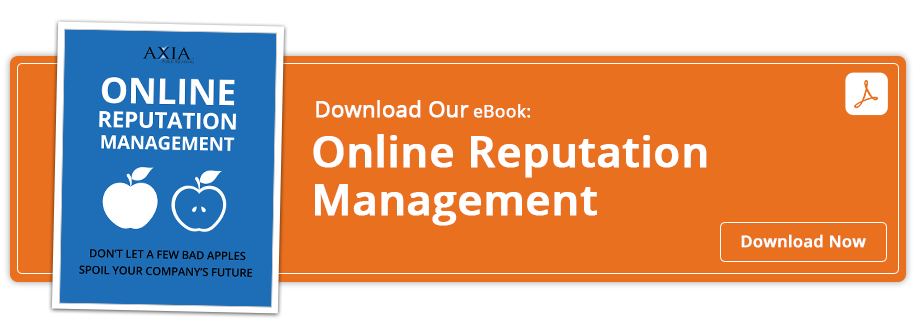Why scandal can land your company in the news – and how to recover
By Jacob RicheyFebruary 16, 2023
Avoid unethical business practices to keep your reputation safe.
 While many companies seek earned media coverage, they always hope the news media will portray them in a positive light. And while public relations efforts can increase your chances of positive news media coverage, it’s important to realize the news media doesn’t have to honor your positive reputation.
While many companies seek earned media coverage, they always hope the news media will portray them in a positive light. And while public relations efforts can increase your chances of positive news media coverage, it’s important to realize the news media doesn’t have to honor your positive reputation.
News media outlets publish stories their consumers will find newsworthy. Newsrooms use a range of news elements that news consumers care about in their stories to give the stories news value, and not all of these elements will bode well for your company. If you consume news media, you may notice how many stories feature some sort of scandal – whether it’s some celebrity feud or, in our concern, negative company news.
Audio: Listen to this article.
To avoid negative media attention for your company, it’s important to understand what news consumers care about and subsequently find newsworthy. A majority of news consumers make purchase decisions with a company’s values in mind, and a scandal can reveal that a company isn’t quite who it claims to be, which is one reason why news consumers find scandal newsworthy. News consumers also generally find conflict newsworthy, and newsrooms might catch on to a conflict between your company’s image and actions.
What is scandal?
You’ve likely heard of several famous scandals, which typically involve a prominent or famous person doing something the public deems morally wrong. While some momentary scandals may generate media attention and then pass in a week, serious scandals can damage an individual or company’s reputation deeply – and sometimes irreparably.
One of the most famous scandals you might know is the 1972 break-in at the Watergate complex, which was tied to President Richard Nixon’s reelection campaign. This was such a scandal because it involved Nixon abusing power to gain information to smear a political opponent, in hopes of winning a second term. Because Nixon was a prominent political figure and the scandal had a wide impact, it damaged Nixon’s reputation so severely that he resigned.
Other, less impactful stories about scandal have a place in the news cycle as well, such as recent allegations that Maroon 5 singer Adam Levine cheated on his wife. And while the internet has spread the scandal with humor, it doesn’t appear this scandal has caused deep reputational damage because it lacks consequence to the public.
How does this affect your company?
News media coverage of scandal isn’t limited to celebrity and political news. If your company engages in unethical or deceptive practices, you could find negative stories about your company in the news media, which can severely damage the trust you build with your target audience. In the worst cases, it can even cost executives their careers.
The best way to avoid deeply damaging news media coverage is to avoid engaging in the harmful actions that warrant such coverage. A recent investigation into international fast-fashion company Shein led to news reports vilifying the company for unethical business practices such as extremely low employee wages, unsafe and illegal working conditions, and copying others’ designs. The Cut’s headline for this story – “Shein Is Even Worse Than You Thought” – directly addresses the outlet's readers, making it clear that it thinks readers care about this company’s unethical practices.
Here’s another example. In 2018, Papa John’s founder John Schnatter used a racial slur on a conference call, as reported by Forbes. After the report surfaced, Papa John’s lost $96.2 million in shares. The same day, Schnatter issued an apology and resigned as a Papa John’s chair. In this example, which ended Schnatter’s career, it’s apparent how careless remarks can damage public opinion about a company and land the company in a crisis. However, Schnatter’s immediate resignation quickly distanced the scandal from the company, resulting in a complete recovery in stocks the next day, according to CNBC. During a crisis, speedy action makes or breaks your company’s reputation.
Must Read: Unethical practices in PR
What do you do if your company has a scandal?
If you wake up to find your company’s name amid scorching headlines, remain calm and act quickly. Journalists will seek comments from your company executives, and it’s important you say the right thing at the right time – if anything at all – to avoid worsening the crisis.
If you must issue a response, remember to prepare key messages and stick to those when speaking with the news media, or record a video statement instead. If the news story you want to respond to is more than a few days old, it could be best to say nothing at all, as your comment could reignite the negative attention.
Navigating a crisis alone is daunting and dangerous with your company’s reputation at stake. Axia Public Relations has years of experience in crisis management, and you can rely on us as a trusted adviser in keeping your company’s reputation secure. If you’re currently in a crisis, check out our numerous crisis PR packages, and for tips on proactively avoiding a crisis, download our e-book “Managing Public Relations in a Crisis” today.
Photo by RODNAE Productions
Topics: crisis communications, earned media, news media


Comment on This Article